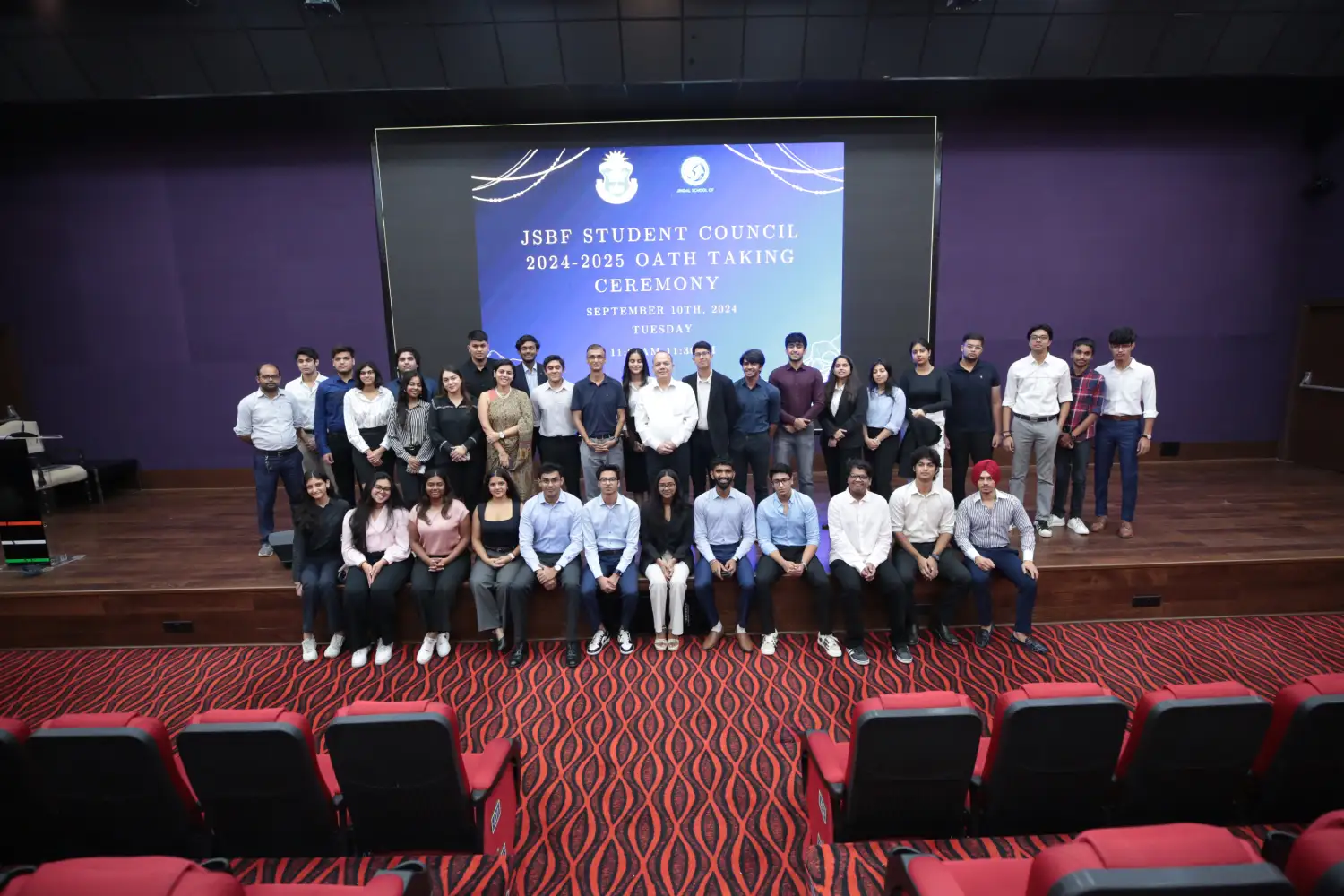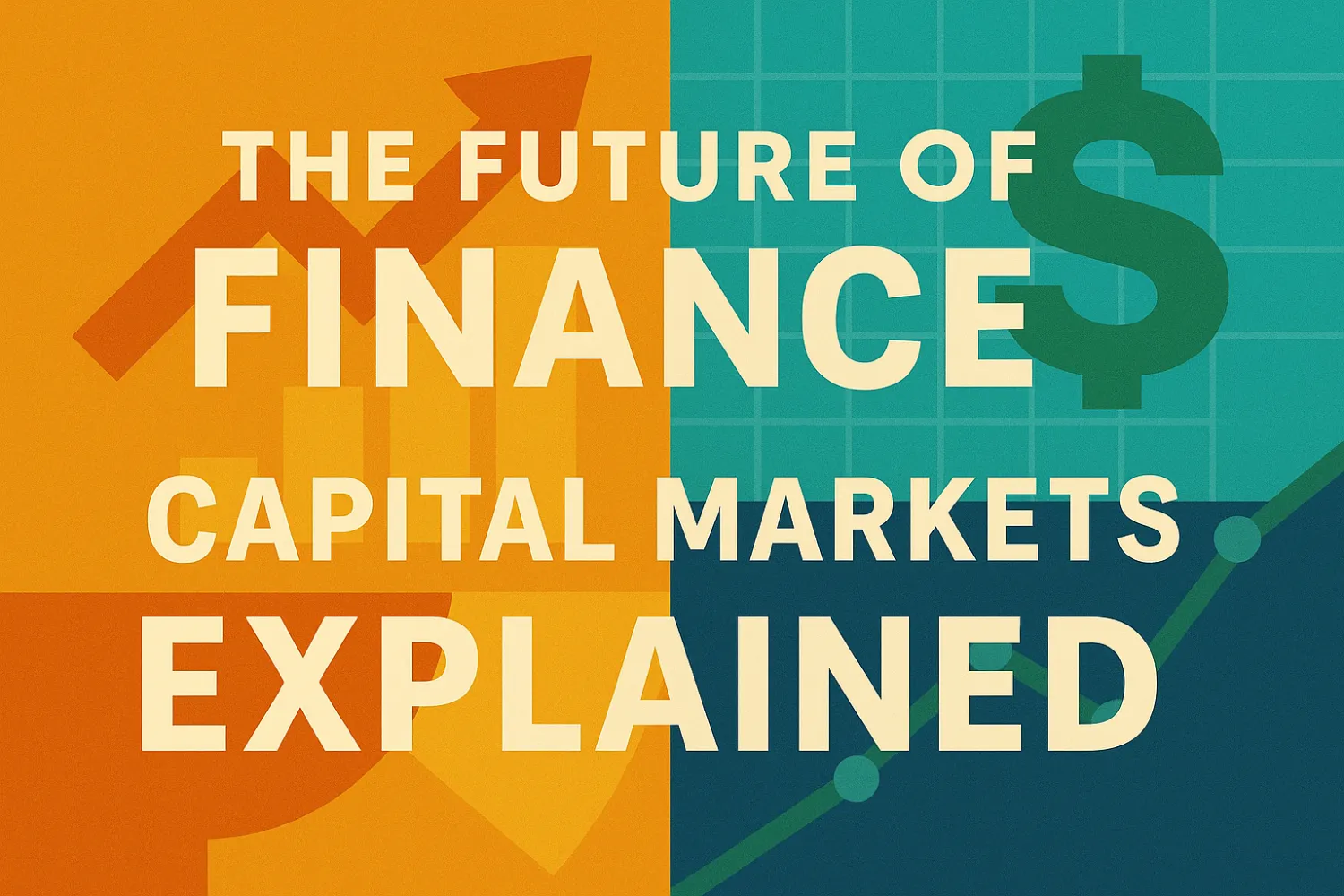Introduction
In a world marked by capitalism and consumerism, finance is perhaps the most significant component of how an individual, an organisation or a national government manages financial matters, and engages in trade is what primarily finance is all about. A finance school like the Jindal School of Banking & Finance is committed to preparing students with a vast knowledge of finance and banking and a wide range of skills required to prosper in the field.
In Economics, the process of finance is defined as the acquisition of financial investments, funds, or loans from individuals or entities to use them for a productive cause. As modern economics and global trade evolve, the idea and process of finance also change with the inclusion of new methods and technologies.
| Table Of Contents | |
| 1. | Introduction |
| 2. | What Is Referred To As Financial Technology? |
| 3. | The Rise & Role Of Fintech In Building A Better World |
| 4. | Financial Education AT JSBF In A Tech-Driven World |
| 5. | Future Trends In Fintech To Consider For Educational & Professional Purposes |
| 6. | Why Fintech Is Revolutionising Finance Education — Are Schools Keeping Up? |
| 7. | Why Is JSBF Considered One Of The Finest Schools For Financial Studies? |
| 8. | FAQs |
| 9. | Source Links |
What Is Referred To As Financial Technology?
Since the beginning of global trading, financial markets have played a significant role in channeling financial services, allowing both investors and loan applicants to smoothly facilitate the transfer of funds. For decades, these financial services were conducted manually, leaving extensive paperwork in their wake and great room for human errors.
As technological advancements started to increase at a rapid pace, the financial world too had to embrace these changes to improve its functionality and cope with the recent times. Financial technology, or fintech, became a way for companies and consumers to better manage financial operations with the help of software and algorithms like automation and the all-powerful AI technology.
The Rise & Role Of Fintech In Building A Better World
Initially, Fintech was part of many financial institutions like banks, which were the primary spots for financial technology to show their potential, such as backend systems. The rise of consumer-oriented financial technology picked up pace as recently as 2018, as other prominent industries like education, hospitality, and other sectors are also consistently welcoming the change.
The development and use of cryptocurrency is considered another milestone in the world of finance. For a finance school in 2025, explaining to students about the role of fintech in the contemporary context of the financial world is essential. Financial technology has been introduced and applied as a technological tool to streamline financial services legally.
According to EY and Digital Lenders Association India (DLAI), their joint report titled ‘The Role Of Fintech In Building Vikshit Bharat’ is in line with the national vision to expand the fintech market by 30% by 2030. The rise in fintech markets is expected due to digitalisation and the rise of digital structure, rising incomes and financial inclusion initiatives. Fintech has its advantages and disadvantages, and they have been widely accepted for simplifying financial services under a protected process.
Financial Education At JSBF In A Tech-Driven World
A finance school like the Jindal School of Banking & Finance has a greater responsibility to teach students about the ever-changing financial industry. The role of different financial systems, introduction to innovative financial instruments, and the emerging financial technology scene, along with industry-relevant training, are all strategically included in M.Sc. programmes specialising in Finance.
The one-year course is divided into three semesters, and the highlight subjects are: Financial Mathematics, Statistics, Financial Economics, Accounting, Fintech Applications, Financial Risk Management, Corporate Financial Management, Investment Management, among other topics.
Future Trends In Fintech To Consider For Educational & Professional Purposes
While technology is advancing, financial literacy has become paramount not just to use financial services but to protect oneself from financial fraud. For a finance school to provide relevant knowledge and skills about the financial world and its operations, considering contemporary examples and experiences is genuinely important.
Similarly, the future of the fintech industry seems to be constantly evolving, and it is important to consider the future trends to be aware of for academic and care-related reasons. Mobile features like online payments and investment tools are already making a great difference. Here are some of the expected future trends that are expected to affect the world of banking and finance significantly.
- Biometric Authentication
- Mobile & App Wallets
- AI-Native Banking
- Automation
- Open Banking
- Cryptocurrencies
- Blockchain Technology
- Gamification
Other technological ideas and nuances are being researched as we speak, and the financial world is expected to go through a wide variety of changes in the coming years, especially in India, which has a fintech adoption rate of 87%, according to BFSI.
Why Fintech Is Revolutionising Finance Education — Are Schools Keeping Up?
M.Sc. Finance universities in India are readily updating their curriculum and pursuing an interdisciplinary and industry-relevant approach to a systematic understanding of the Financial world and banking processes. There is no denying the emergence of fintech and its impact has been equally significant. Technology is a double-edged sword, especially in fintech, where the demand for financial literacy and awareness is ever-increasing.
Educational institutions are keeping up with the changing financial world by focusing on financial literacy using both theoretical and technological grounds to acquire the skills required for finance jobs. Their course module and industry-based curriculum are designed to help them develop expertise in accounting, data analysis, critical thinking, communication, budgeting and solving problems.
Why Is JSBF Considered One Of The Finest Schools For Financial Studies?
Jindal School of Banking & Finance is a renowned finance school in India offering international standards of education through an interdisciplinary and industry-relevant teaching and training methods. The M.Sc. programme for Finance is aimed at priority candidates who are looking for a specialised study in Finance.
Only graduates with a 50% score and featuring in one of the following entrance exams: GMAT, CAT, GRE, XAT, and MAT, can apply for the M.Sc. programme. If you have not appeared for any entrance exam, you can also sit for the JGU Finance Aptitude Test. A final round interview determines the admission of the candidate.
JSBF aims to give its students a thorough understanding of financial concepts and strategies, and they are trained with skills to manage, analyse, trade, and make decisions. They gather experience of using the latest tools and technologies in the financial world and have first-hand experience of working with financial institutions and industry leaders, addressing problems and devising solutions that positively affect the financial world.
FAQs
JSBF integrates fintech into its curriculum through specialised modules, practical training, and exposure to emerging technologies, ensuring students are equipped with industry-relevant knowledge.
Yes. The M.Sc. Finance programme includes subjects such as Fintech Applications, Financial Modelling, and Risk Management, blending core finance with technological competencies.
No prior technical background is necessary. The curriculum is structured to build both financial and technological literacy from the ground up.
JSBF is distinguished by its interdisciplinary approach, international academic standards, industry-aligned curriculum, and a strong emphasis on experiential learning.
The school facilitates internships, live projects, industry simulations, and guest lectures by professionals, allowing students to apply classroom learning to real-world challenges.
JSBF offers structured career guidance through mentorship, placement support, industry networking, resume-building workshops, and interview preparation.
Source Links
- https://www.britannica.com/money/finance
- https://www.investopedia.com/terms/f/fintech.asp
- https://www.ey.com/en_in/insights/financial-services/the-role-of-fintech-in-building-viksit-bharat
- https://www.investopedia.com/the-future-of-fintech-4770491
- https://www.squadstack.com/blog/top-5-fintech-trends-and-predictions
- https://www.forbes.com/councils/forbesfinancecouncil/2023/05/03/how-tech-is-influencing-financial-literacy/





